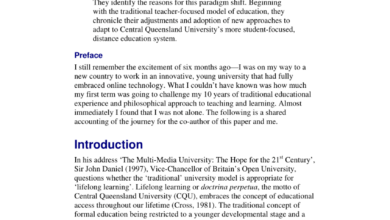Online Universities: Revolutionizing Higher Education
Contents
Hello, Readers!
In an era characterized by rapid technological advancements, online universities have emerged as transformative forces in the realm of higher education. These virtual institutions offer flexible, accessible, and affordable alternatives to traditional brick-and-mortar universities, enabling individuals from all walks of life to pursue their academic aspirations.
In this comprehensive article, we will delve into the world of online universities, exploring their strengths, weaknesses, and potential impact on the future of education. We will also provide practical information and answer frequently asked questions to help you make informed decisions about your educational journey.
Introduction
Online universities leverage the power of internet connectivity to deliver educational content and facilitate learning experiences. Unlike traditional universities, online universities do not require physical attendance at a campus, offering greater flexibility and convenience to students.
Students enrolled in online universities can access course materials, complete coursework, and participate in discussions from anywhere with an internet connection. This flexibility allows them to tailor their education to their schedules and commitments, enabling them to balance their studies with work, family responsibilities, and other personal obligations.
Moreover, online universities often offer a wider range of programs and courses than traditional universities, catering to diverse student interests and career aspirations. With the removal of geographical constraints, online universities can attract faculty and experts from around the world, enhancing the quality and diversity of instruction.
The affordability of online education is another significant advantage. Online universities typically have lower overhead costs compared to traditional universities, allowing them to offer tuition and fees that are more accessible to a broader range of students.
Online universities also promote inclusivity by making higher education more accessible to individuals who may face barriers to traditional university attendance, such as those living in remote areas, individuals with disabilities, or those who have family or work commitments.
While online universities offer numerous benefits, it is essential to acknowledge their potential drawbacks as well. One key challenge lies in maintaining the same level of academic rigor and student engagement as in traditional university settings.
Furthermore, online learning requires a high degree of self-motivation and discipline, as students are primarily responsible for managing their own learning and time. Technical issues and a lack of face-to-face interaction can also pose challenges for some students.
Strengths and Weaknesses of Online Universities
Strengths:
Flexibility: Online universities provide unmatched flexibility, allowing students to study at their own pace and schedule. This flexibility is particularly beneficial for working professionals, parents, and individuals with busy lives.
Accessibility: Online universities break down geographical barriers, making higher education accessible to students from all over the world. Individuals living in remote areas or with mobility issues can now pursue their academic goals without relocating.
Affordability: Online universities typically have lower overhead costs compared to traditional universities, which often translates into lower tuition and fees. This affordability makes higher education more accessible to a wider range of students.
Diversity of programs and courses: Online universities offer a wider range of programs and courses than traditional universities, catering to diverse student interests and career aspirations.
Inclusivity: Online universities promote inclusivity by making higher education more accessible to individuals who may face barriers to traditional university attendance, such as those with disabilities or family responsibilities.
Convenience: Online universities offer the convenience of studying from anywhere with an internet connection. Students can access course materials, complete coursework, and participate in discussions at their own convenience.
Weaknesses:
Academic rigor: Maintaining the same level of academic rigor and student engagement as in traditional university settings can be challenging for online universities.
Self-motivation and discipline: Online learning requires a high degree of self-motivation and discipline, as students are primarily responsible for managing their own learning and time.
Technical issues: Technical issues can pose challenges for online students, such as slow internet connections or software compatibility problems.
Lack of face-to-face interaction: The lack of face-to-face interaction can make it difficult for students to build relationships with their classmates and professors.
Isolation: Online learning can sometimes lead to feelings of isolation, as students may not have the same level of social interaction as in traditional university settings.
Limited access to resources: Online universities may not have the same access to resources as traditional universities, such as libraries, laboratories, and student support services.
Accreditation: It is essential to ensure that the online university you choose is accredited by a recognized accrediting agency to ensure the quality and credibility of your education.
Table: Overview of Online Universities
| Feature | Traditional Universities | Online Universities |
|---|---|---|
| Attendance | Required on campus | Not required |
| Flexibility | Limited | High |
| Accessibility | Local | Global |
| Affordability | Typically higher | Typically lower |
| Program and course offerings | Limited by campus resources | Wide range due to lack of geographical constraints |
| Inclusivity | Lower | Higher |
| Convenience | Low | High |
| Academic rigor | Typically higher | Challenges in maintaining |
| Self-motivation and discipline | Lower | Higher |
| Technical issues | Minimal | Potential challenges |
| Face-to-face interaction | High | Limited |
| Isolation | Lower | Potential challenges |
| Access to resources | Extensive | Limited |
| Accreditation | Essential | Essential |
Frequently Asked Questions (FAQs)
Are online degrees as valuable as traditional degrees?
Yes, online degrees from accredited institutions are generally recognized as equal to traditional degrees. Accreditation ensures that the education and training you receive meet recognized quality standards.
What are the admission requirements for online universities?
Admission requirements vary by university, but typically include a high school diploma or equivalent, transcripts, and sometimes an entrance exam or interview. Check with the specific university you are interested in for details.
Can I transfer credits from a traditional university to an online university?
Yes, many online universities accept transfer credits from accredited institutions. The number of transferable credits may vary depending on the university and the courses you have taken.
Are online universities a good option for working professionals?
Yes, online universities offer flexibility and convenience, making them a great option for working professionals who need to balance their education with their career commitments.
What kind of support do online universities offer to students?
Online universities typically provide various forms of support to students, such as technical support, academic advising, tutoring, and career services.
How do I choose the right online university?
Consider factors such as accreditation, program offerings, cost, flexibility, and student support when choosing an online university. Research different universities and compare their offerings to find the best fit for your needs.
What are the career prospects for graduates of online universities?
Graduates of online universities have similar career prospects as graduates of traditional universities. The value of an online degree depends on factors such as the reputation of the university, the program you complete, and your skills and experience.
Concluding Thoughts
Online universities are revolutionizing higher education by offering flexible, accessible, and affordable alternatives to traditional universities. While they have their strengths and weaknesses, online universities can provide a valuable and enriching educational experience for those who are self-motivated, disciplined, and seeking a flexible learning environment.
As technology continues to advance and online learning platforms improve, the role of online universities will only continue to grow. By embracing the opportunities offered by online education, you can unlock new possibilities for your academic and professional growth.
If you are considering pursuing an online degree, take the time to research different universities, weigh the strengths and weaknesses, and choose the program that best aligns with your goals and aspirations. With careful planning and dedication, you can achieve your educational dreams through the transformative power of online universities.
Closing Words
In a rapidly changing world where technology is shaping every aspect of our lives, online universities are leading the way in making higher education more accessible and inclusive. Whether you are a working professional, a parent, or someone who has always dreamed of pursuing a degree, online education opens up endless possibilities for personal and professional advancement.
As you embark on your educational journey, embrace the opportunities offered by online learning while being mindful of its potential challenges. With a positive attitude, a strong work ethic, and a commitment to









